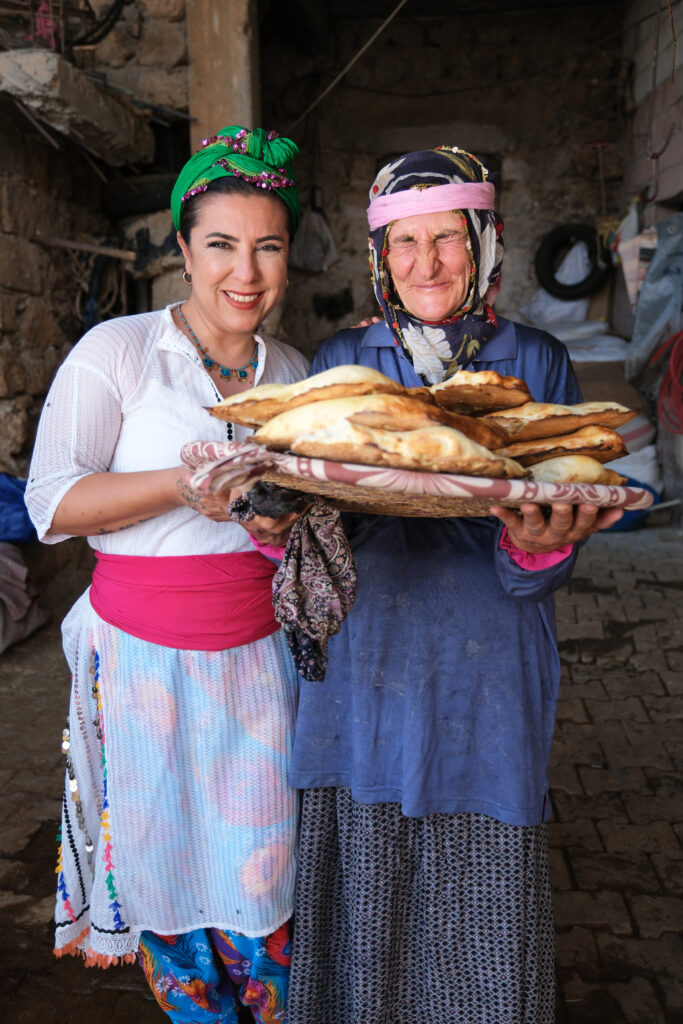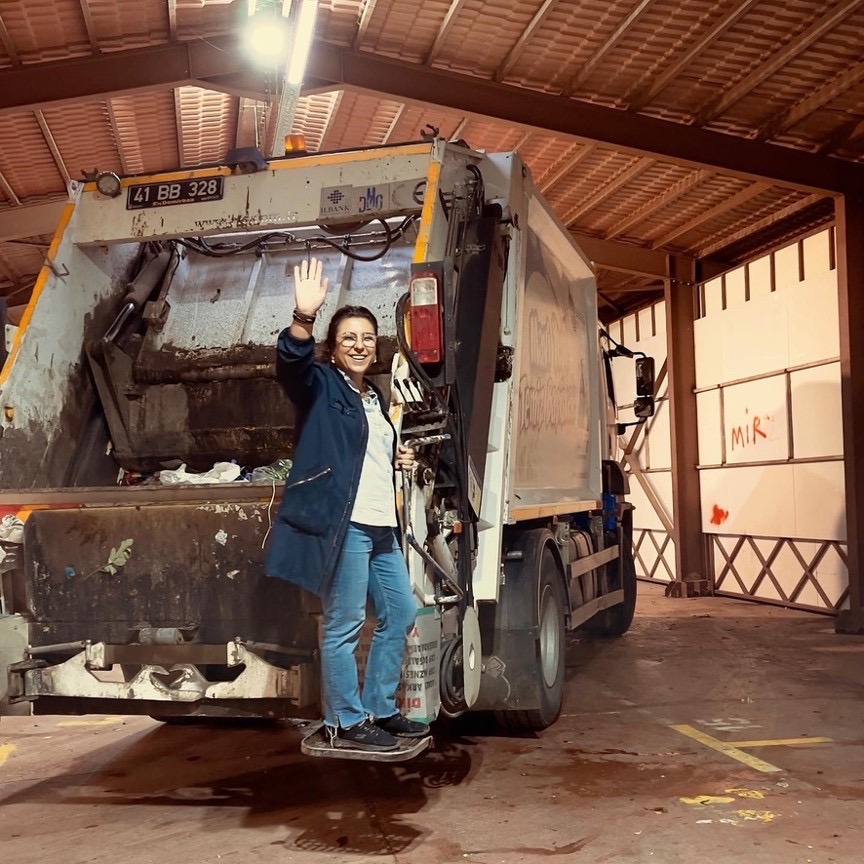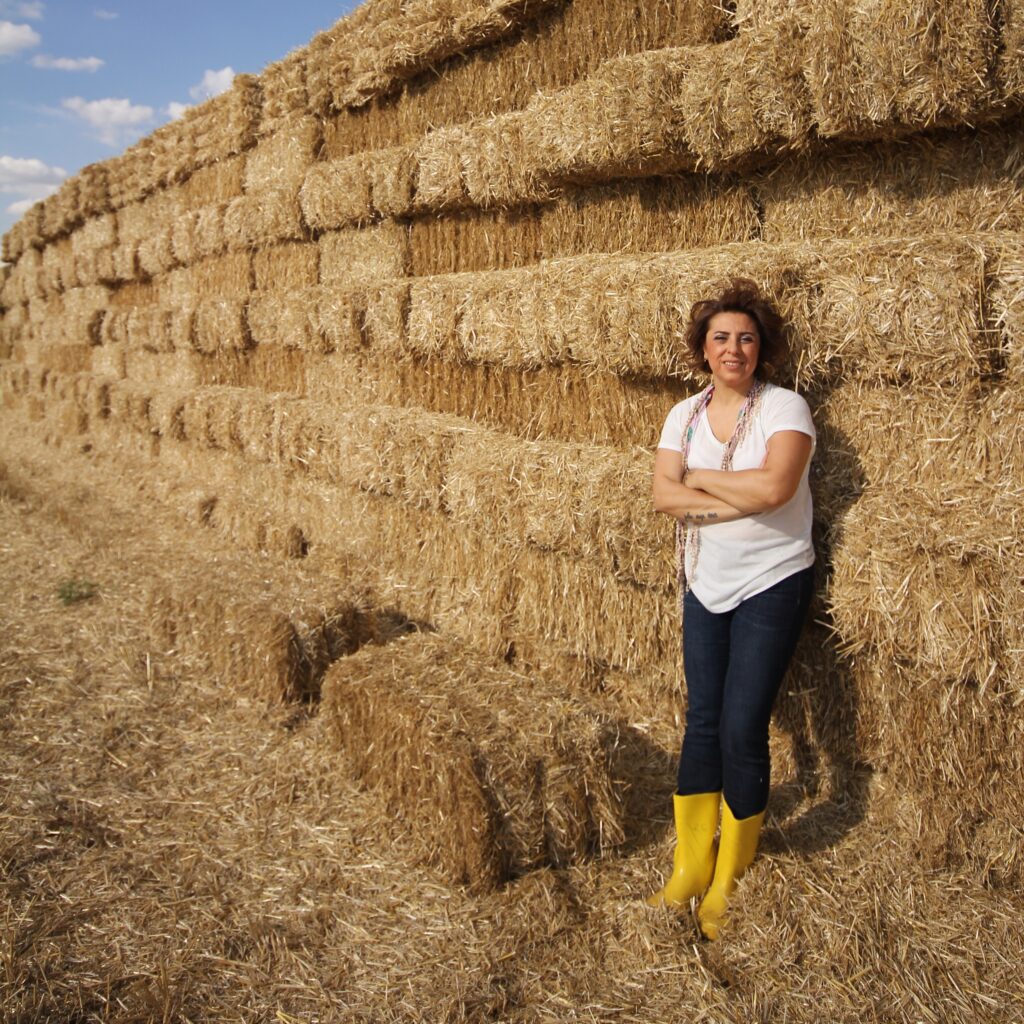With her long term work empowering local women and refugees, Turkish chef Ebru Baybara Demir is improving society by gastronomy. One plate at a time. David Lloyd pulls up a chair…
Published:
25.04.2024
Writer:
David Lloyd
History hangs heavily in the sultry air of Mardin. The hilltop city, close to the Syrian border, was first settled in the 11th century BC (or BCE – whatever system you use!). Its strategic location on the east-west trade routes has seen Assyrians, Romans, Muslims, Mongols and Catholics add their stories, and their cultures, to a UNESCO-protected roll-call of mosques and madrassas, churches and bazaars.
For chef and agent of change Ebru Baybara Demir, the city’s true riches lie in the soils and the plains that wrap around the city – the ‘Fertile Crescent’ of ancient Mesopotamia, where agriculture itself was born.
It’s where Demir’s equally fertile tale begins too. But this is a tale that meanders as wilfully as the Tigris – the river which, since the dawn of civilization, has given life to the region’s ancient crops. But more on those crops later.
After studying tourism in Istanbul, Demir was all set for a career as a professional tour guide in Turkey’s capital. The 1999 Earthquake forced the young graduate to draft out a new career path, the coordinates of which involved a 1,500 kilometre detour. Demir was going back to her roots.
“I had a goal, everything was planned,” Demir says, “I was going to my family’s home city of Mardin, and I was determined to turn it into a great tourist city.”

On the face of it, Demir’s course correction seemed like a sensible Plan B. Mardin’s sunny climate, ancient history and dazzling architecture give this ochre-coloured town, crowned by a ruined Roman citadel, instant tourist appeal. Wind your way through the narrow streets which cling to the contours of the Izla Mountain ridge and you’ll feel that little has changed since the Ottomans settled here in the 16th century.
Ironically, as Demir was to discover on her arrival, the same could be said about the town’s tourist offer, too.
“Marzin was already a city visited by tourists, but it only had one small three-star hotel and a small cafe,” Demir recalls.
For many of us, that could have signalled a fatal flaw in the grand plan. For Demir, it meant it was time to get to work.
“One day, a tourist group I was hosting said they didn’t like the food at this eatery and wouldn’t dine there,” she says.
“My aunt suggested hosting the group in her own home courtyard, so a table was set with my aunt’s family dishes and the traditional food cooked by neighbouring women,” Demir says.
The tourist group hungrily devoured the impromptu event. Demir, alert to the transformational potential of what she was witnessing, traced out yet another path towards putting Mardin back on the map. Is food the missing link to all of this, she began to wonder?
“I arranged for a group of nearby houses to do something similar,” she says. “I created menus, and helped local housewives to start earning income.”



“Our food is changing,” Demir says. “Just like the climate and the soil. If you can’t sustain your food, you lose the cornerstone that preserves your ancient knowledge.”
For the first time in its millennia-spanning history, the town was celebrating its most ancient treasure of all – its grains, spices and fruit, the recipes they infused, and the alchemy that happens when food brings people together.
Demir opened Mardin’s first tourist restaurant, reanimating a long-abandoned mansion, Cercis Murat, in 2001. Helped by a team of 21 women the restaurant quickly became one of the region’s most popular destinations. Word soon spread. Change was on the menu.
“From that day on, I presented all the secrets and recipes I learned in my mother’s kitchen,” Demir says, explaining how the experience presented a poignant sense of coming full circle.
“When I mentioned that I was going to Mardin, my father was the first to object,” Demir says. “He came to Istanbul to escape a society where girls were disadvantaged, so that he could raise and educate me and my two sisters,” she says.
As Demir admits, her father’s hometown hadn’t changed much since the day he left, half a century ago. “When I arrived, I still felt disadvantaged as a woman. But I learned that it’s not about telling people what to do. If you want to create a change you should involve everyone.”
Demir recounts how, after the opening of Cercis Murat Mansion, an elderly man approached her. “He said, ‘I have a mansion. It’s more beautiful than your restaurant, and my daughters-in-law cook very well. Do you think I should turn this place into a restaurant or a hotel as well?’”
This was the turning point. The year Demir arrived, Mardin saw around 10,000 visitors. Now the town welcomes millions every year. “My success, and that of the 21 women who trusted me, changed my home city’s economy,” Demir says. “The people of Mardin put faith in our success and invested in tourism.”
A self-described social gastronomy chef, Demir says her job isn’t confined to her kitchen and its heady aromas of cardamom, sour plum stew, and molasses. For Demir, food isn’t the end of the story. It’s where the story takes flight.
“I’m concerned with how many lives I can touch throughout the process of food,” Demir says. From the soil to the marketplace, the kitchen to the plate, this is a story that’s been told, and retold down the ages. It would be tempting to see that unbroken lineage of toil, cultivation and nourishment and confidently project it forward. But, as Demir says, it’s complicated.
“Our food is changing,” Demir says. “Just like the climate and the soil. If you can’t sustain your food, you lose the cornerstone that preserves your ancient knowledge.”
It’s why, baked into every decision Demir makes, is a determination to address something deeper: how do we preserve what nourishes us from the past, and adapt it into the needs of the present?
“It started with those traditional recipes and the women who prepared them,” Demir says. “When we began this journey, women couldn’t even leave their homes without their husbands’ permission. Today, women are business owners, workers, and producers. Food has changed the economy of a city.”
Mardin’s is an economy where both tourism and agriculture are the main source of income – for the city and its industrious new pioneers. For Demir, the two are now more closely bound together than they’ve ever been. After the success of her restaurant, Demir set up an agricultural cooperative, Topraktan Tabağa (‘from soil to plate’), to process and sell the products of more than 170 small holders.
“The farmers’ children are moving away from the land, buildings are rising on the fields,” Demir says. “If they can sustain their lives by farming, they will continue to sow.”
Farmers earn income, allowing them to continue to produce the region’s crops, and pass on their skills to the next generation. Small changes that fan out across the ancient landscape like water rolling over the floodplains.
Turkey’s first social cooperative, Topraktan Tabağa ploughs all its profit back into employment and investment. To date, it employs nearly 50 local residents.
“Agriculture began in these lands,” Demir says. “As a native of Mardin, a chef and most importantly a mother, I feel the responsibility of carrying this legacy into the future, in order to leave a healthy soil and good food to all children.”
With every new project, Demir is unearthing long-dormant skills, and tapping into something ancient and elemental. This is a landscape that has been cultivated for millennia; its people among the first to work together, lay down roots and build communities. Radiocarbon dating has shown that agriculture, and with it, the first rudimentary villages, started here at least 10,000 years ago.
“I wanted to revive Sorgül, the oldest wheat in Mesopotamia,” Demir says of her ambition to nurture this 13,000 year old crop – the predecessor to every strain of wheat now cultivated – back onto her menus.
“We started multiplying it using traditional methods. Two landowners volunteered to support me. We planted a handful of Sorgül with 70 female farmers. The results were so successful that it turned into a product with regular yields, with more than 350 farmers working on 36,000 acres of land and having a market.”
The crop, planted without pesticides, revealed something even more astonishing – there is a muscle memory in this soil. If you pay heed to it, and turn your gaze towards the ground, it will respond. “Farmers really believe in Sorgül,” Demir says. “My passion initiated a change in Mardin. Now it’s helping to reveal that returning to old ways in agriculture are inevitable.”
Learning from the past, and looking to the future is, for Demir, the only direction of travel that makes sense. “Real, sustainable change must benefit both the people and the environment. It’s crucial for all farmers to continue cultivating healthy food and to secure a sustainable income from their efforts.”
It’s a way, Demir believes, to instil confidence in the next generation, too. “By promoting inclusive economic development and empowering local communities, we can create lasting change,” she says.
From a tour guide who went off the beaten track, to a chef that ventured beyond the kitchen, today Demir remains as determined as ever to focus on planting seeds for the future. Much has been achieved already, but spend time with her and you get a sense that there is much more to be done, too.
“I have three active projects on the go,” she admits, with a smile. “The cooperative is creating a new venue, ‘Zamarot 1890’, which will be Turkey’s first zero waste restaurant when it opens later this year.” Demir says that, like the cooperative’s other businesses, the restaurant’s revenue will be used for employment and investment.
Meanwhile, Gönül Mutfağı, its soup kitchen, is still working flat out to feed victims of February 2023’s earthquakes across the Turkish-Syrian borderlands, 500 kilometres west, in Hatay province.
“My energy comes from witnessing the tangible difference our work makes in people’s lives, driving us towards a more sustainable future,” Demir says. “Whenever I encounter a problem in my community, I instinctively approach it from a gastronomic perspective.”
It’s an approach that hasn’t gone unnoticed. Last year Demir won the 2023 Basque Culinary World – considered to be a kind of ‘Nobel Prize’ for Gastronomy for recognising the achievements of those who use food as an agent for social change. She was selected from 800 nominations across 42 countries.
Demir’s investing the €100,000 prize money, awarded for her work in empowering women, into a cafe, run by Turkish and Syrian chefs, due to open this year.
Profits from the restaurant will go towards supporting operations for her expanding network of soul kitchens, which feed local school children.
“My goal from the very beginning of all of this was to work to benefit my country and its people from a gastronomic perspective,” Demir says. “Being noticed and appreciated is incredibly motivating. I work for goodness, and I believe goodness always gains momentum everywhere in the world.”


